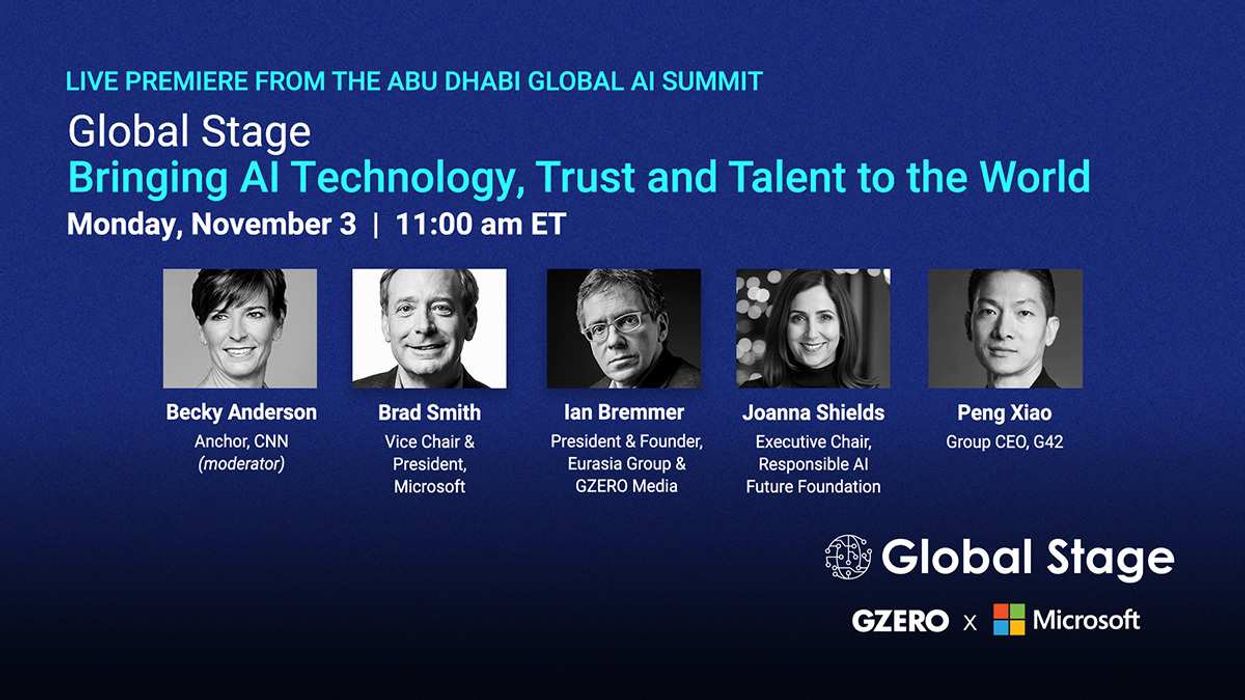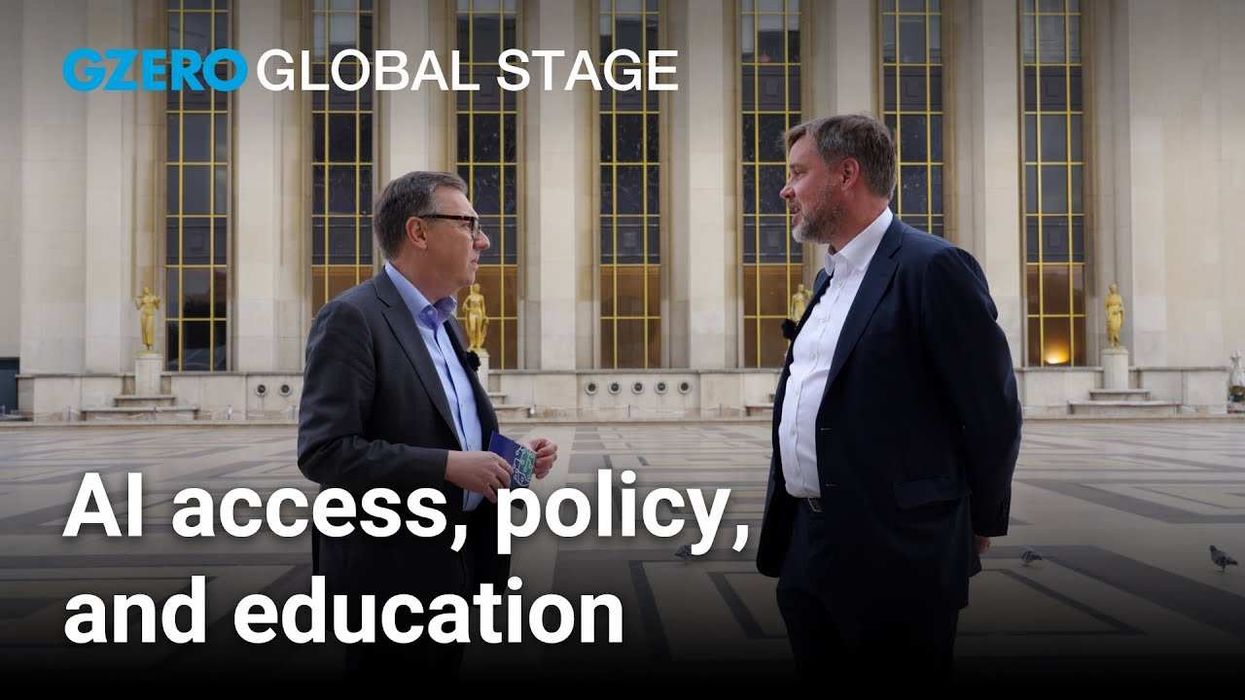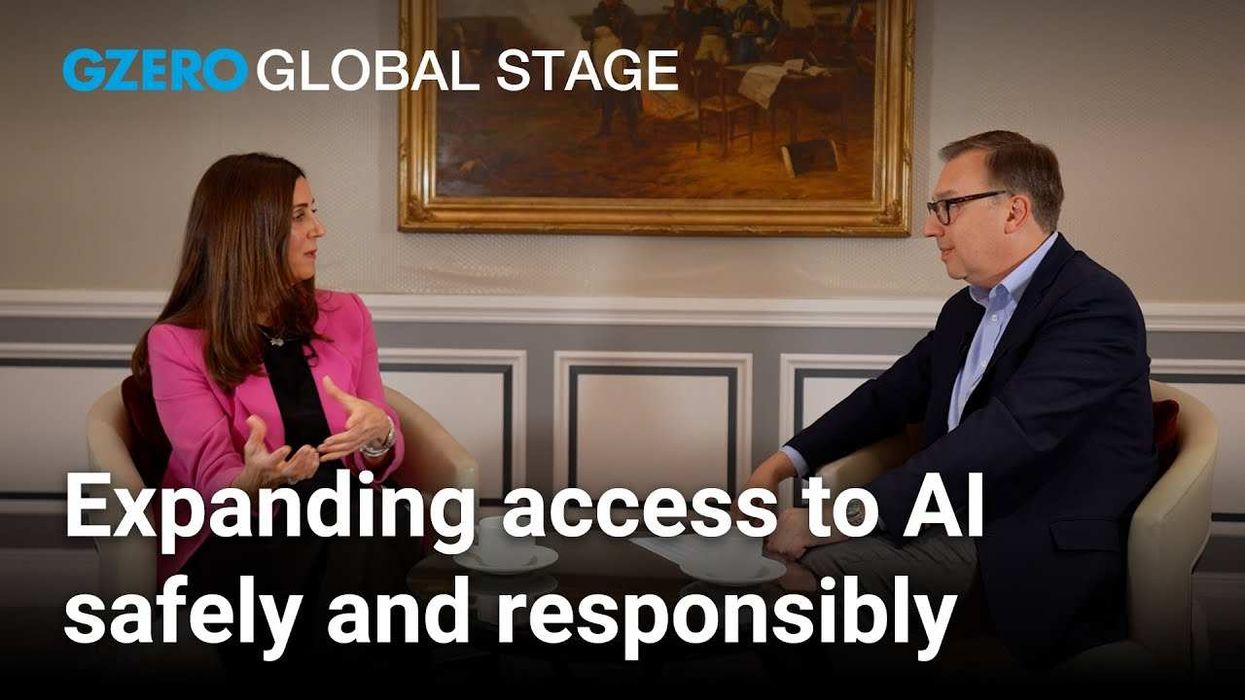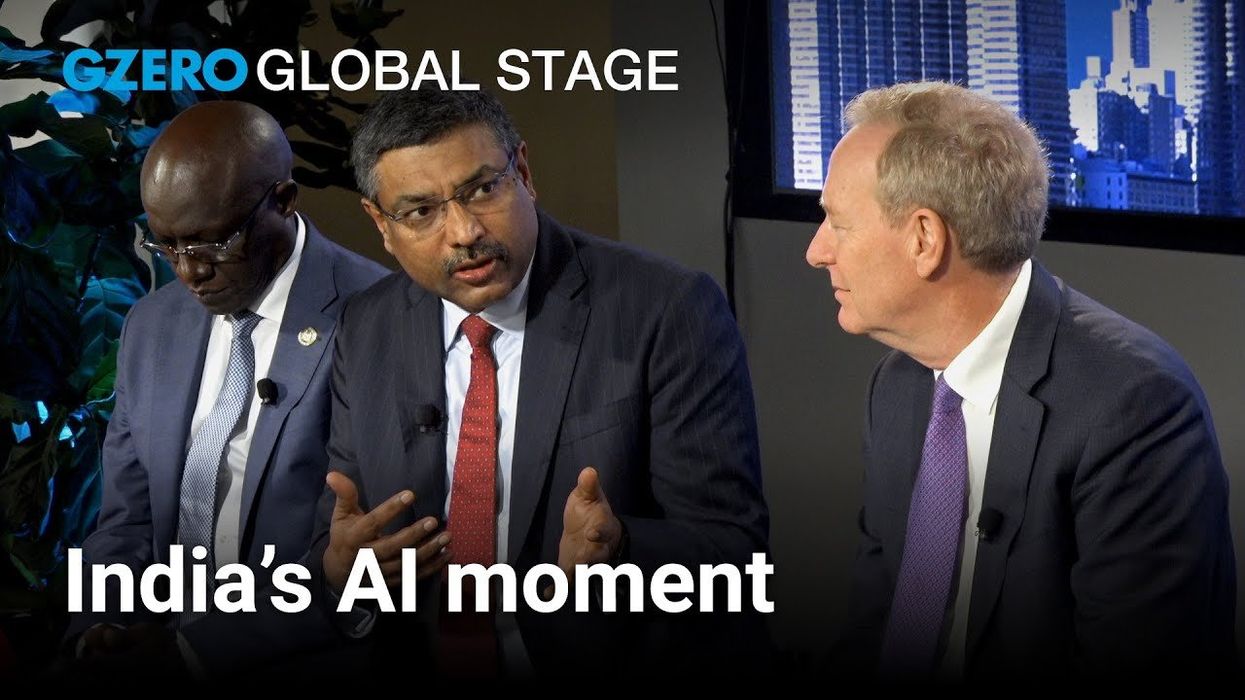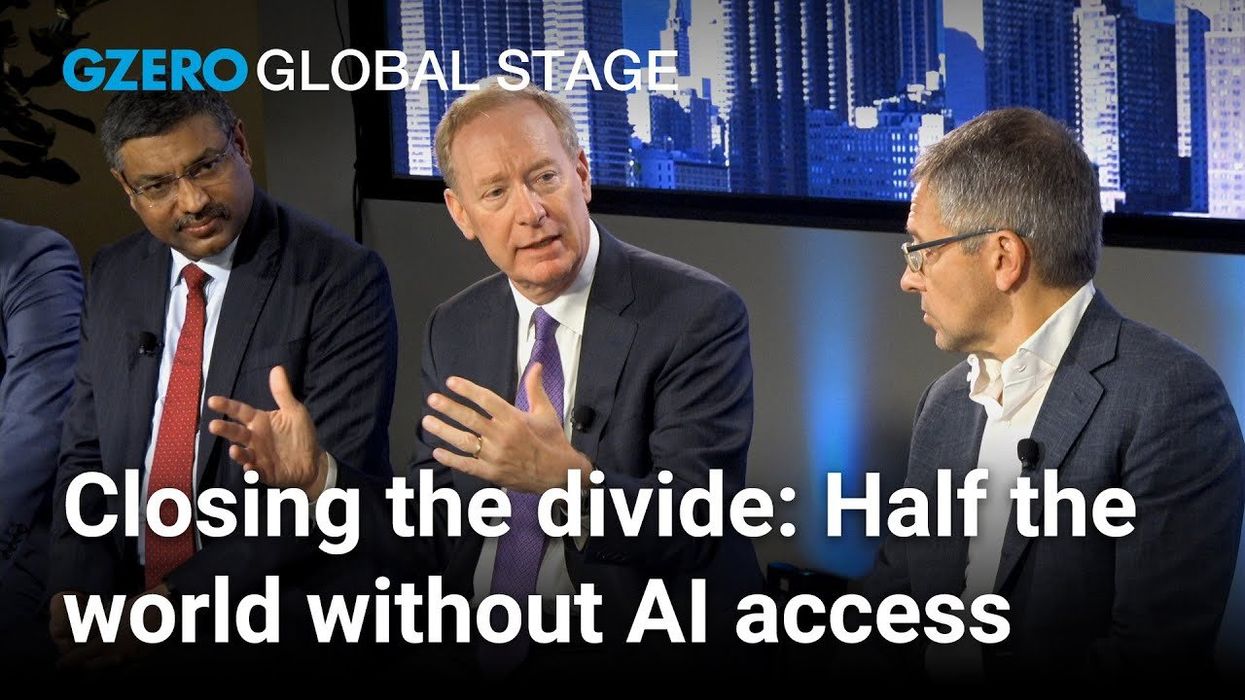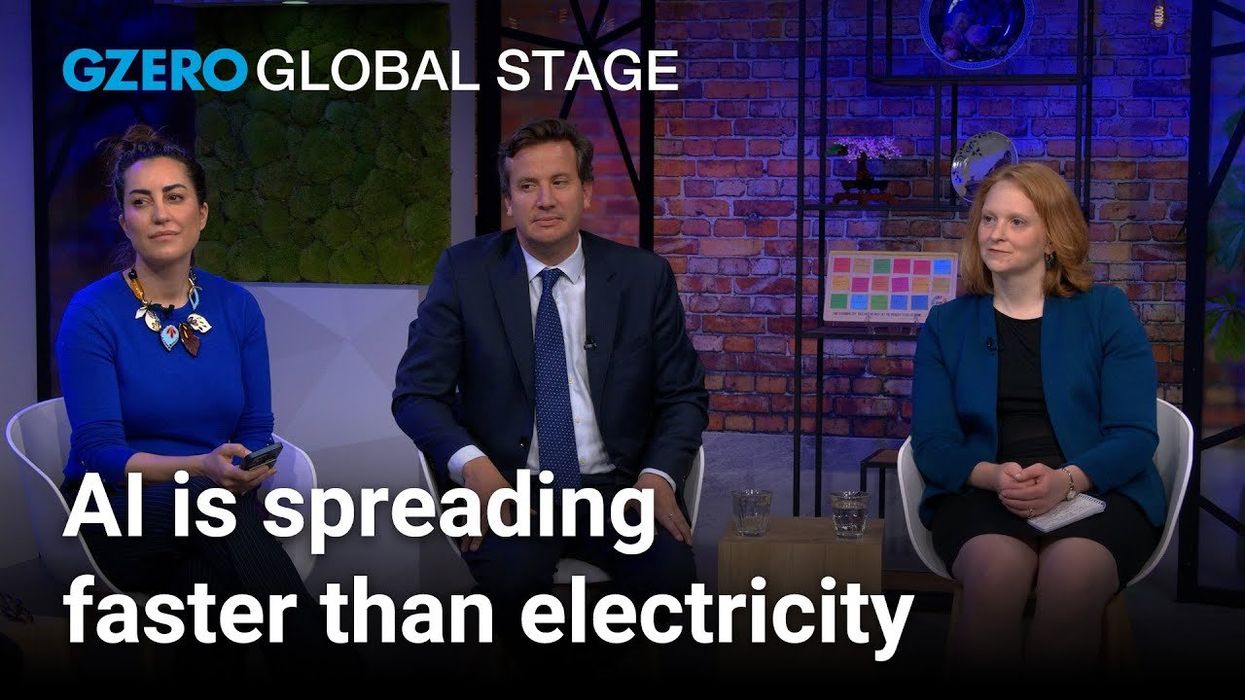Posts
Live premiere today at 11 AM ET: Global Stage at the Abu Dhabi Global AI Summit
LIVE PREMIERE TODAY AT 11 AM ET: What does it take to build AI economies? Our global experts explore this question, touching on data infrastructure, skilling, and governance, in a conversation at the inaugural Abu Dhabi Global AI Summit. Watch at 11 am ET at gzeromedia.com/globalstage.
Nov 03, 2025
